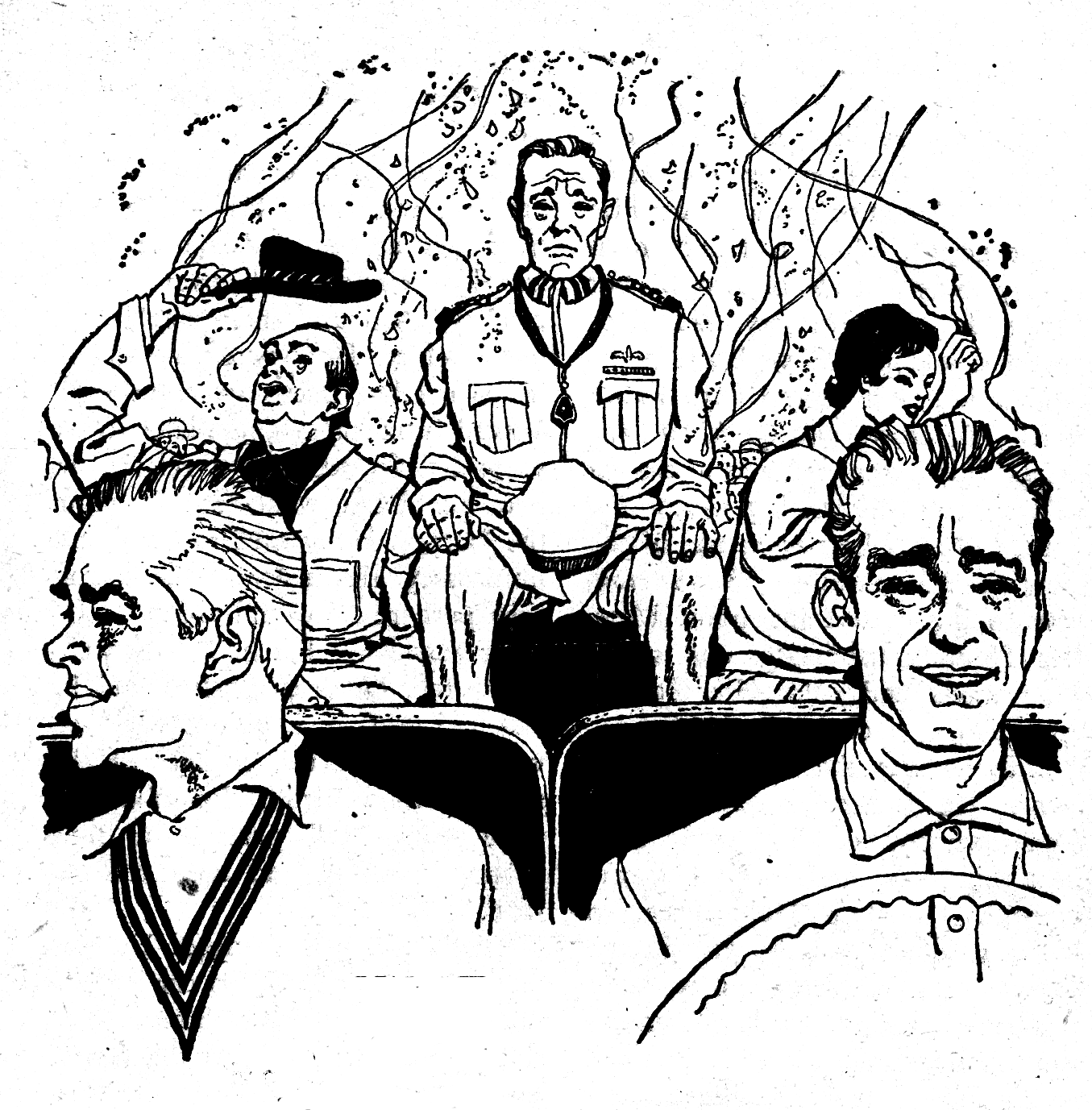THE FIRST ONE
By HERBERT D. KASTLE
Illustrated by von Dongen
[Transcriber's Note: This etext was produced from Analog July 1961.Extensive research did not uncover any evidence that the U.S. copyrighton this publication was renewed.]

The first man to return from beyond the Great Frontier may bewelcomed ... but will it be as a curiosity, rather than as ahero...?
There was the usual welcoming crowd for a celebrity, and the usualspeeches by the usual politicians who met him at the airport which hadonce been twenty miles outside of Croton, but which the growing city hadsince engulfed and placed well within its boundaries. But everythingwasn't usual. The crowd was quiet, and the mayor didn't seem quite asat-ease as he'd been on his last big welcoming—for Corporal Berringer,one of the crew of the spaceship Washington, first to set Americansupon Mars. His Honor's handclasp was somewhat moist and cold. HisHonor's eyes held a trace of remoteness.
Still, he was the honored home-comer, the successful returnee, thehometown boy who had made good in a big way, and they took the triumphaltour up Main Street to the new square and the grandstand. There he satbetween the mayor and a nervous young coed chosen as homecoming queen,and looked out at the police and fire department bands, the NationalGuard, the boy scouts and girl scouts, the Elks and Masons. Several ofthe churches in town had shown indecision as to how to instruct theirparishioners to treat him. But they had all come around. The tremendousnational interest, the fact that he was the First One, had made themcome around. It was obvious by now that they would have to adjust asthey'd adjusted to all the other firsts taking place in these—as thenewspapers had dubbed the start of the Twenty-first Century—theGalloping Twenties.
He was glad when the official greeting was over. He was a very tired manand he had come farther, traveled longer and over darker country, thanany man who'd ever lived before. He wanted a meal at his own table, akiss from his wife, a word from his son, and later to see some oldfriends and a relative or two. He didn't want to talk about the journey.He wanted to forget the immediacy, the urgency, the terror; then perhapshe would talk.
Or would he? For he had very little to tell. He had traveled and he hadreturned and his voyage was very much like the voyages of the greatmariners, from Columbus onward—long, dull periods of time passing,passing, and then the arrival.
The house had changed. He saw that as soon as the official car let himoff at 45 Roosevelt Street. The change was, he knew, for the better.They had put a porch in front. They had rehabilitated, spruced up,almost rebuilt the entire outside and grounds. But he was sorry. He hadwanted it to be as before.
The head of the American Legion and the chief of police, who hadescorted him on this trip from the square, didn't ask to go in with him.He was glad. He'd had enough of strangers. Not that he was through withstrangers. There were dozens of them up and down the street, standingbeside parked cars, looking at him. But when he looked back at them,their eyes dropped, they turned away, they began moving off. He wasstill too much the First One to have his gaze met.
He walked up what had once been a concrete path and was now an ornateflagstone path. He climbed the new porch and raised the ornamentalknocker on the new door and heard the soft music sound within. He wassurprised that he'd had to do this. He'd thought Edith would be watchingat a window.
And perhaps she had been